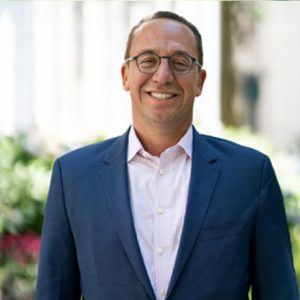Criminal Sexual Acts
Posted on Monday, July 14th, 2025 at 9:23 am
Reading the words “Criminal Sexual Act” can feel cold, distant, and clinical. It’s a legal term, pulled from statutes and courtrooms, and it can seem utterly disconnected from the deeply personal, painful, and traumatic reality of what you have experienced. Your experience wasn’t a line in a law book; it was a violation that may have shattered your sense of safety, your trust in others, and your understanding of the world.
We want to start by acknowledging that. Before we talk about any definitions or legal concepts, it’s essential to validate your truth. What happened to you was real, it was wrong, and your feelings about it are valid. There is no right or wrong way to feel if you’ve experienced sexual abuse. Whether you feel anger, confusion, numbness, sadness, or a complex mix of everything at once, please know that your reaction is a human reaction to an inhuman experience.
The purpose of this post is not to reduce your experience to a legal definition. Instead, our goal is to gently pull back the curtain on this term. Understanding what a Criminal Sexual Act means in a legal context can be an empowering step. It can provide a framework for your experience, affirm that what happened was not only morally wrong but also unlawful, and illuminate a potential path toward holding the responsible parties accountable. It is a tool—one of many—that can help you reclaim your narrative and seek justice on your own terms. The New York sexual abuse attorneys at Hach Rose Schirripa & Cheverie LLP are here to help you understand your rights and walk with you through each step of that process.
You are not alone on this journey. Let’s walk through this together, with clarity and compassion.
Beyond the Definition: Understanding Consent and Violation
 At its very core, the concept of a Criminal Sexual Act revolves around the absence of consent. Consent is not a gray area. It is not silence, and it is not the absence of a “no.” Consent is a freely given, enthusiastic, and ongoing “yes.” It is a clear and unambiguous agreement between individuals.
At its very core, the concept of a Criminal Sexual Act revolves around the absence of consent. Consent is not a gray area. It is not silence, and it is not the absence of a “no.” Consent is a freely given, enthusiastic, and ongoing “yes.” It is a clear and unambiguous agreement between individuals.
A Criminal Sexual Act occurs when one person engages in a sexual act with another person without their consent. This can happen in many ways, including:
- Through force or coercion: Using physical violence, threats, or intimidation to compel someone into a sexual act.
- When a person is incapacitated: Taking advantage of someone who is unable to consent because they are asleep, unconscious, intoxicated, or otherwise physically or mentally helpless.
- When there is a significant age difference: In New York, as in all states, there are laws that make it impossible for a child below a certain age to legally consent to sex with an adult. This recognizes the inherent power imbalance and the developmental inability of a child to truly understand and agree to such an act.
- When there is a power imbalance: Abusing a position of authority or trust, such as a doctor, therapist, teacher, or clergy member, to engage in a sexual act with someone in their care.
These are not just technicalities; they are acknowledgments of the fundamental right every person has to bodily autonomy. A Criminal Sexual Act is a profound violation of that right. It is an act of power, control, and exploitation, and the law recognizes it as such. Can you sue for this kind of violation? In many cases, yes. Civil legal action offers survivors a path to seek accountability and compensation beyond the criminal system.
Where These Violations Occur: The Betrayal of Trust
Criminal Sexual Acts don’t just happen in dark alleys at the hands of strangers. Far more often, they are committed by people the survivor knows and, in many cases, trusts. This adds a devastating layer of betrayal to the trauma. The abuse is often perpetrated in places that are supposed to be safe—schools, churches, doctors’ offices, and even our own homes.
Understanding these contexts is crucial because it helps to dismantle the myth that survivors are somehow to blame for not being more careful. The responsibility lies solely with the abuser and the institutions that may have enabled or covered up their actions.
Childhood Sexual Abuse
The innocence of childhood is meant to be a time of safety, learning, and growth. When an adult shatters that innocence through sexual abuse, the wounds are uniquely deep and long-lasting. Childhood sexual abuse is a profound betrayal committed by someone who holds power over a child—a family member, a teacher, a coach, a clergy member, or a family friend.
Abusers who target children are often masters of manipulation. They use a process called grooming to break down a child’s boundaries, create a false sense of a “special” relationship, and isolate them from others who might intervene. They may use gifts, special attention, or threats to ensure silence.
A child in this situation cannot consent. The power dynamic, the manipulation, and their developmental stage make true consent an impossibility. So hard to recognize in the moment, grooming often masks abuse as affection or mentorship. Survivors of childhood abuse often carry feelings of guilt or confusion for years, wrongly believing they were somehow complicit. It is vital to state this unequivocally: It was not your fault. The responsibility rests entirely with the adult who abused their power.
Clergy and Religious Institutions
Faith communities are supposed to be sanctuaries of spiritual guidance, support, and trust. For many, a priest, pastor, rabbi, or other religious leader is a figure of immense authority and moral standing. When that sacred trust is violated through sexual abuse, it can trigger a profound crisis of faith and a deep sense of spiritual devastation. Survivors may feel isolated from the very community that was once their source of strength.
Furthermore, religious institutions have historically engaged in patterns of covering up abuse, moving perpetrators to new parishes, and silencing survivors to protect their own reputations. This institutional betrayal compounds the initial trauma, leaving survivors feeling voiceless and abandoned.
Schools and College Campuses
Schools and universities are entrusted with the education and well-being of students. They have a legal and moral duty to provide a safe environment. Yet, these are often the settings for sexual assault and misconduct. This can involve abuse by teachers, coaches, or other staff members who exploit their position of authority. It also includes student-on-student assault, which can be fueled by campus cultures that fail to adequately address issues of consent, alcohol, and accountability.
Survivors on campus may fear social stigma, disbelief from administrators, or negative impacts on their academic careers, making it incredibly difficult to come forward.
Medical and Therapeutic Settings
We go to doctors, therapists, and other healthcare providers in our most vulnerable moments. We entrust them with our bodies and our deepest personal struggles. When a medical professional exploits this vulnerability for sexual gratification, it is a staggering breach of ethical and professional duty.
This form of abuse can be subtle, disguised as a legitimate medical procedure or therapeutic technique, leaving the survivor feeling confused and questioning their own perceptions. The inherent power imbalance in the patient-provider relationship makes it a deeply exploitative environment for a Criminal Sexual Act to occur.
Youth Sports and Community Organizations
Coaches and youth leaders are often seen as mentors and role models. They are supposed to teach skills, build character, and foster teamwork. When a coach uses this position to groom and abuse a young athlete, they shatter that trust.
The abuse can be hidden in plain sight, masked as special attention or intensive training. The entire team dynamic can be manipulated to isolate the survivor and ensure their silence, as they may fear losing their place on the team, disappointing their parents, or being ostracized by their peers. Seeking justice for survivors often begins with acknowledging these dynamics and holding those in power accountable.
Dealing with Sexual Abuse: The Long-Term Impact
The impact of Criminal Sexual Acts doesn’t end when the act itself is over. The trauma can ripple through every aspect of a survivor’s life, creating emotional, psychological, and physical challenges that can last for years. If you are experiencing any of the following, please know that you are not alone, and these are normal responses to an abnormal event.
- Emotional Turmoil: It is common to experience a wide range of intense emotions, including fear, anxiety, depression, anger, and profound sadness. Some survivors experience emotional numbness, a feeling of being detached from their body or their surroundings, which is a protective mechanism of the brain.
- Shame and Guilt: Society, unfortunately, still harbors deep-seated myths about sexual assault. These myths can lead survivors to internalize blame, wondering if they did something to cause the abuse. You may ask yourself, “Why didn’t I fight back harder?” or “Did I send the wrong signal?” These are questions born of trauma, not truth. The blame lies 100% with the perpetrator.
- Post-Traumatic Stress Disorder (PTSD): Many survivors develop PTSD, which can manifest as flashbacks, nightmares, severe anxiety, and uncontrollable thoughts about the event. Everyday sights, sounds, or smells can become triggers, bringing the trauma back as if it were happening all over again.
- Impact on Relationships: Trust is a cornerstone of any healthy relationship. When that trust has been so violently broken, it can be incredibly difficult to form close, intimate bonds with others. Survivors may struggle with intimacy, feel isolated from friends and family, or find it hard to trust anyone again.
- Physical Symptoms: Trauma is held in the body. Survivors may experience chronic pain, fatigue, sleep disturbances, digestive issues, and other physical symptoms that have no clear medical cause.
Healing is not a linear path. There will be good days and difficult days. Be gentle with yourself. The journey of recovery is your own, and there is no timeline or deadline. The most important step is simply allowing yourself the grace and space to heal. Many survivors also find strength when they choose to hold their abusers accountable, turning pain into purpose and reclaiming a sense of control.
The Path Forward: Finding Support and Seeking Justice
 Taking the first step toward healing can feel overwhelming, but you do not have to walk this path by yourself. Reaching out for support is an act of profound strength and self-care.
Taking the first step toward healing can feel overwhelming, but you do not have to walk this path by yourself. Reaching out for support is an act of profound strength and self-care.
Emotional and Psychological Support:
Connecting with a trauma-informed therapist can provide you with a safe space to process your experience and develop coping strategies. Support groups, whether in-person or online, can also be incredibly powerful, connecting you with other survivors who truly understand what you are going through. Hearing others’ stories and sharing your own can help to dismantle feelings of isolation and shame. National organizations like RAINN (Rape, Abuse & Incest National Network) offer free, confidential hotlines (800-656-HOPE) and online resources.
Understanding Your Legal Options:
For some survivors, seeking justice through the legal system is an integral part of their healing journey. It can be a way to hold the abuser and any enabling institutions accountable, to regain a sense of control, and to ensure that what happened to you does not happen to anyone else. This path is even more significant considering that so many victims do not report, often due to fear, shame, or the belief that they won’t be believed.
It’s important to understand the difference between criminal and civil cases.
- A criminal case is brought by the state (through a prosecutor or district attorney) against the perpetrator. The goal is to punish the abuser with penalties like jail time. The survivor acts as a witness in this process.
- A civil case is a lawsuit that you, the survivor, can file against the abuser and/or the institution that failed to protect you (like a school, church, or hospital). The goal of a civil case is not to send anyone to jail, but to secure financial compensation for the harm you have endured. This can cover costs for therapy, lost wages, and pain and suffering.
For many survivors, a civil lawsuit offers a greater sense of control and agency. It allows you to tell your story on your own terms and directly confront not just the individual abuser, but the systemic failures that allowed the abuse to happen. It is a powerful declaration that your voice matters and that the harm done to you has a tangible cost.
Taking legal action is a deeply personal decision, and it is not the right path for everyone. There is no pressure and no correct choice. It is simply an option available to you—a tool you can choose to use in your fight for justice and healing. Victims pursue happiness not only through legal accountability but also by reclaiming their peace on their own terms.
Compassionate Legal Support from New York Sexual Abuse Lawyers
 The term “Criminal Sexual Act” may be a legal one, but the experience it represents is profoundly human. It is a story of pain, but it can also become a story of resilience, strength, and survival. Your story matters. Your voice has the power to break the silence, to demand accountability, and to light the way for others who may still be in the dark.
The term “Criminal Sexual Act” may be a legal one, but the experience it represents is profoundly human. It is a story of pain, but it can also become a story of resilience, strength, and survival. Your story matters. Your voice has the power to break the silence, to demand accountability, and to light the way for others who may still be in the dark.
Taking the first step toward justice can feel like an impossible mountain to climb, but you don’t have to face it alone. At Hach Rose Schirripa & Cheverie LLP, our firm is dedicated exclusively to representing survivors of sexual abuse. We understand the courage it takes to come forward, and we are committed to standing with you every step of the way.
If you are a survivor of childhood sexual abuse, clergy abuse, medical misconduct, or any other form of sexual assault, we are here to help you understand your options. Contact Hach Rose Schirripa & Cheverie LLP today at (212) 779-0057 or through our online form for a free, completely confidential consultation. Your story matters, and justice is possible.